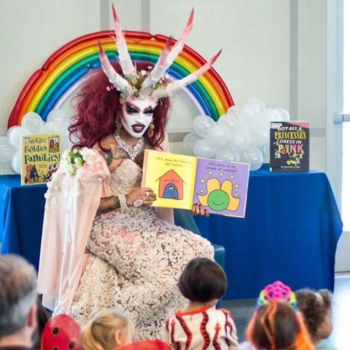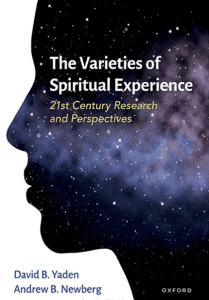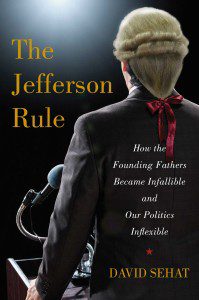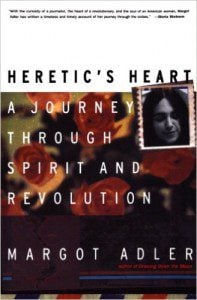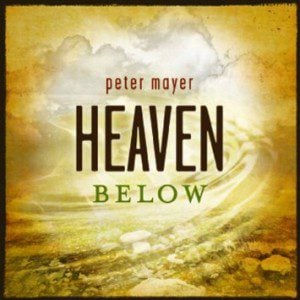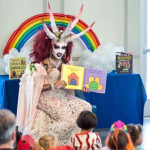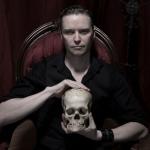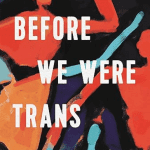This post is the first in a two-part series reflecting on Unitarian Universalism.
Next week, I plan to write about “Why Universalism?”
For me, the move from Liberal Christianity to Unitarianism Universalism has been an important paradigm shift in our multi-religious, multi-polar, postmodern world. Before the advent of modern technology, which has made us increasingly globalized and interconnected, it was easier to justify a belief that there is One, Unchanging, Right Way of Believing and Being in the world. But after the advent of modern technologies such as radio, television, and the Internet we are more aware than at any previous time in history that the more than 7 billion people on this planet are deeply diverse, multicultural, and pluralistic.
In response to this diversity, Unitarian Universalism looks not to one singular source, but to Six Sources:
- Direct experience of that transcending mystery and wonder, affirmed in all cultures, which moves us to a renewal of the spirit and an openness to the forces which create and uphold life;
- Words and deeds of prophetic women and men which challenge us to confront powers and structures of evil with justice, compassion, and the transforming power of love;
- Wisdom from the world’s religions which inspires us in our ethical and spiritual life;
- Jewish and Christian teachings which call us to respond to God’s love by loving our neighbors as ourselves;
- Humanist teachings which counsel us to heed the guidance of reason and the results of science, and warn us against idolatries of the mind and spirit;
- Spiritual teachings of earth-centered traditions which celebrate the sacred circle of life and instruct us to live in harmony with the rhythms of nature.
At the same time, I continue to respect the decision of individuals and communities who choose to focus predominantly on one source. Great benefit can come from going deeply into Judaism, Christianity, Buddhism, Paganism, Humanism, or other related paths. (Indeed, UUs are well advised to choose a spiritual path to emphasize personally in addition to being part of a larger UU community that embraces a wide diversity.) But given what we know in the twenty-first century, to me it only makes sense to commit to one path if you make the all important caveat that any single path is merely one among many possible legitimate paths.
That’s the vital paradigm shift if we are ever going to learn to live together in peace amidst all our human diversity: from a search for One True Way for all people, times, and places to a realization that every way is merely one among many. That being said, let me hasten to add that being a pluralist (who acknowledges that there are many ways of creating smart, funny, kind, competent, well-adjusted human beings) does not necessitate being a relativist (the nonsensical belief that every way is equally good).
And when I look at my own journey from conservative Christianity (which insisted that there was only One Way) to liberal Christianity (which is tolerant of multiple paths) to Unitarian Universalism (which fully embraces and celebrates multiple paths), the primary motivation that kept me moving along that path to pluralism was that the more I learned, the less I was able to maintain the position that Christianity was the only or best way of being in the world.
The fancy theological term for this perspective is called “The Scandal of the Incarnation,” which refers to the problem of defending the position that the history of the universe turns on the life of one Jewish peasant who lived in one small corner of this planet more than two thousand years ago. That worldview is somewhat defensible if one believes that the Earth is the center of the universe, that the universe is six thousand years old, and that the end of time is coming any day now. But after the work of scientists such as Copernicus, Darwin, and Hubble, it is increasingly scandalous to believe that the history of the universe turns on the life of Jesus of Nazareth, even if we do still use him to date our Western calendar.
Copernicus showed us almost 500 years ago that the earth is not the center of universe, but merely the third rock from the sun — and part of a solar system that is on the far edge of one part of the vast Milky Way galaxy.
Darwin showed us that we are not a little lower than the angels, but just a little higher than the apes — and deeply interconnected with the ecosystem of this planet.
Hubble helped show us that the Milky Way galaxy is merely one among more than a 100 billion other galaxies in the universe.
Why Unitarianism? Although there are certainly many other vital religious traditions in our world, at least for me, Unitarian Universalism is the path that I have found the most helpful for navigating a 21-century world in which we humans have been radically de-centered from the exalted position some of our ancestors believed that we held.
Now, what I have given so far is a rational, science-based response to the question, “Why Unitarianism?” And in many ways the history of Unitarianism represents a leading edge of attempts to apply the insights of the European Enlightenment to religion. Unitarian Universalism is a liberal theological tradition. And the Liberal Turn in Religion is the move from authority vested in hierarchy, community, and tradition to authority based on reason and personal experience. Staring in the 1500s during the Reformation in Europe and in the 1700s here in North America, the theological ancestors of contemporary Unitarian Universalism courageously demanded that the Bible be interpreted in light of reason, logic, and the best of modern historical scholarship. And as I continue to learn more about UU history, a prominent pattern is the story of individuals who become liberal as they study the Bible closely for themselves and discover that the orthodox claims about the Bible are undercut by a close reading of the Bible itself. It’s no coincidence that the Protestant Reformation began in the early 1500s barely fifty years after the invention of the printing press, which helped produce mass copies of the Bible that individuals could read and interpret for themselves.
And I have been focusing on the Bible (as opposed to other religious texts) because through most of the 19th-century, a major focus of Unitarianism was a liberal interpretation of the Bible. Two major expansionary forces that have overtime created the Unitarian Universalism we know today — in which Christianity is only one among five other sources — are 19th-century Transcendentalism (which explored Eastern religions and emphasized personal experience) and 20th-century Humanism (which even more strongly emphasized science and reason — and a focus on this world over any speculation about an afterlife).
And I would be remiss if in exploring this question of “Why Unitarianism?” if I neglected to explore why we ended up with the somewhat confusing name Unitarian (which of course was exacerbated when the name was lengthened to include Universalism — but we’ll get to that next week). Before being called Unitarian, the theological ancestors of today’s UUs were often called Arian Christians or Socinian Christians, depending on whether they thought Jesus was a little less than God (the Arians) or fully human (the Socinians) — both of which are distinguished from the so-called orthodox Christians, who held, starting with 4th-century Council of Nicea that Jesus paradoxically fully God and fully human. But, as with the scandal of the Incarnation, that paradoxical position has become increasingly difficult to maintain as religious claims has become increasingly subjected to challenge by reason, science, and logic.
And looking at UU history, in the 1500s, we have Unitarian martyrs like Michael Servetus, who was burned at the stake, for writing books like his boldly titled On the Errors of the Trinity (1531), which rightly showed that there is no explicit reference in the Bible for the doctrine of the Trinity. Here in North America, decades before the American Revolution, you can see that UU theological forbears who also questioned the doctrine of the Trinity, would sometimes be able to avoid controversy by simply never mentioning the Trinity one way or the other (Wright 3).
One of my favorite stories from this period is of James Freeman, who was the minister of the historic King’s Chapel in Boston. In 1785, he preached a series of sermons in which he revealed to the congregation his reasons why he had come to disbelieve the doctrine of the Trinity. He assumed he would have to resign, but his conscience would not allow him to continue to lead worship using a Trinitarian liturgy that he no longer believed. The good news is that the congregation agreed with him! Rather than ask him to resign, they voted to change the word of the prayer book to eliminate all references to the Trinity. That’s a classic liberal religious move: if your reason and experience conflict with the liturgy handed down to you by tradition and religious authority, then change the liturgy. And that’s how “the first Episcopal Church in New England became the first Unitarian Church in the New World” (Wright 4). If you are in Boston, you can still visit King’s Chapel today.
As I said above, some of the earliest terms for the view we know today as Unitarianism was Arian Christianity or Socinian Christianity. The answer to “Why Unitarianism?” is that in 1819 The Rev. William Ellery Channing — who has been called “the single most important figure in the history of American Unitarianism” (Robinson 229) — traveled from his congregation in Boston to preach an ordination sermon for the new minister of the congregation we know today as the First Unitarian Church of Baltimore. Channing’s sermon was titled “Unitarian Christianity.”
Among the many important themes of this landmark sermon was that Channing embraced the name Unitarian, which had started an epithet from critics. From the perspective of the conservative, “orthodox” Christians, the most important aspect of liberal Christianity was that they rejected that God and Jesus were one and the same; hence, they preparatively called the liberals “Unitarians” because they rejected the Trinity. In that 1819 sermon, Channing owned that criticism unabashedly. The problem is that the term Unitarian defined the liberals for what they were against (the Trinity), but did not clarify what they were for, which was an emphasis on Jesus’ ethical teachings of radical love (Robinson 29) — what is sometimes called practicing “Jesus’ religion” instead of creating a religion about worshiping Jesus. The liberals also affirmed and taught a much more positive view of human nature in contrast to the orthodox Calvinist position which held that humans are totally depraved. Channing emphasized this teaching in another famous sermon called “Likeness to God.”
From today’s perspective, what I like about the name Unitarian is that we can view it now as emphasizing unity in the midst of all our diversity. And although the term Unitarian was originally coined by critics to emphasize a rejection of the doctrine of the Trinity, we can remember that even more important to the theological ancestors of UUs was an emphasis on the human capacity to choose the good and live ethical lives — what we often today call social justice. We encapsulate that theme today in mottos such as, “Deeds not creeds,” “Salvation by character,” and “We don’t have to believe alike to love alike.”
In this spirit, the 19th-century Unitarian minister Theodore Parker has a famous quote about the shift from religion as right belief to religion as unity-in-diversity and right action. Notice the ways that Parker, through the lens of Liberal Theology, is refining traditional religious view to reflect a focus on unity and ethics:
Be ours a religion which, like sunshine, goes everywhere;
its temple, all space;
its shrine, the good heart;
its creed, all truth;
its ritual, works of love.
You can further see the emphasis on unity-in-diversity and on “right living” over “right belief” through the names that Unitarian Universalism could have had. In the wake of Channing’s influential 1819 sermon “Unitarian Christianity,” the American Unitarian Association was formed in 1825, which eventually merged with the Universalist Church of America in 1961 to form the Unitarian Universalist Association. But other potential names cropped up along the way that emphasized not just what liberals disbelieve, but more importantly what they are for (unity and ethics). Some of these alternative names include “The Universal Church” (Wright 98), “The United Liberal Church of America” (Robinson 167), and the “Free Church of America” or “Free Church Fellowship” (Wright 121).
I should be clear — especially in regard to that name “United Liberal Church of America” that although UUs are indeed a liberal religious tradition, liberal theology is about the use of reason and experience as more important than tradition or authority for religion. In contrast, conservative theology teaches that tradition and religious authorities should usually trump scientific reason and individual experience. But religious liberalism — rejecting traditional religious claims — doesn’t mean that one is necessarily also a political liberal. Indeed, one can be religious liberal and a political conservative. And I have a post planned for November (around the upcoming election) that will explore the ways in which religious liberalism intersects with both liberal and conservative political views.
Living in the midst of such unity-in-diversity isn’t always easy, but it is vital in our pluralistic, postmodern world. As Dr. King said,
because we can never again live apart, [we] must learn somehow to live with each other in peace….. The large house in which we live demands that we transform this world-wide neighborhood into a world-wide [family]. Together we must learn to live as brother [and sister] or together we will be forced to perish as fools….
And as any of you with siblings know, living together as brothers and sisters, doesn’t mean you always get along. But it means remembering that we are related, we are part of one another, and we are called to love one another.
Sources
- David Robinson, The Unitarians and the Universalists
- Conrad Wright, A Stream of Light: A Short History of American Unitarianism
The Rev. Dr. Carl Gregg is a trained spiritual director, a D.Min. graduate of San Francisco Theological Seminary, and the minister of the Unitarian Universalist Congregation of Frederick, Maryland. Follow him on Facebook (facebook.com/carlgregg) and Twitter (@carlgregg).
Learn more about Unitarian Universalism:
http://www.uua.org/beliefs/principles



